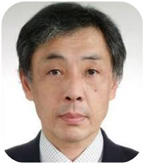Plenary Speakers

-
Prof. Shuichi Yamamoto
Director, Yamaguchi University Biomedical Engineering Center (YUBEC)
Yamaguchi University, Ube, 755-8611, Japan
After completing his Ph. D study at Kyoto University, he joined Yamaguchi University. He is currently Director of Biomedical Engineering Center (YUBEC), which is one of the Centers of Excellence of Yamaguchi University. He is also working as a Board Member and a project group leader for a National Consortium, Manufacturing Technology Association of Biologic (MAB). His research interests are in the field of bio-chemical engineering, food engineering and mass transfer in addition to process chromatography. He has received several awards such as the 2016 Award from the Society of Chemical Engineers, Japan, and the 2017 Award from Japan Society for Food Engineering. His chromatography models known as "Yamamoto Models or Methods" have been employed by many researchers in company and academia. He is Past President of Asian Pacific Confederation of Chemical Engineering (APCChE), a Council Member of World Chemical Engineering Council (WCEC), and Division Chair of Bioprocess and Bioseparation Engineering Division, Asian Federation of Biotechnology (AFOB). 
-
Prof. Ian Henderson
Director of IMB
Prior to becoming Director, Prof. Henderson was the Deputy Director (Research) at IMB. Previously, he was the inaugural Director of the Institute of Microbiology and Infection at University of Birmingham (2012-2018). He completed his BSc at University College Dublin, his PhD at Trinity College Dublin, and postdoctoral studies at the Centre for Vaccine Development, University of Maryland. Prof. Henderson is a microbiologist and his research is based on the philosophy that the bacterial cell surface offers a rich source of molecules, which can be utilised and adapted to treat or prevent infections. His research resulted in a treatment for patients with severe respiratory infections, by using a technique called plasmapheresis to remove damaging antibodies from the blood stream. He has had multiple roles serving in government panels, research councils, professional societies, journals, and universities, and is currently an international member for the UK REF2021 (UoA5 Biological Sciences) exercise.











